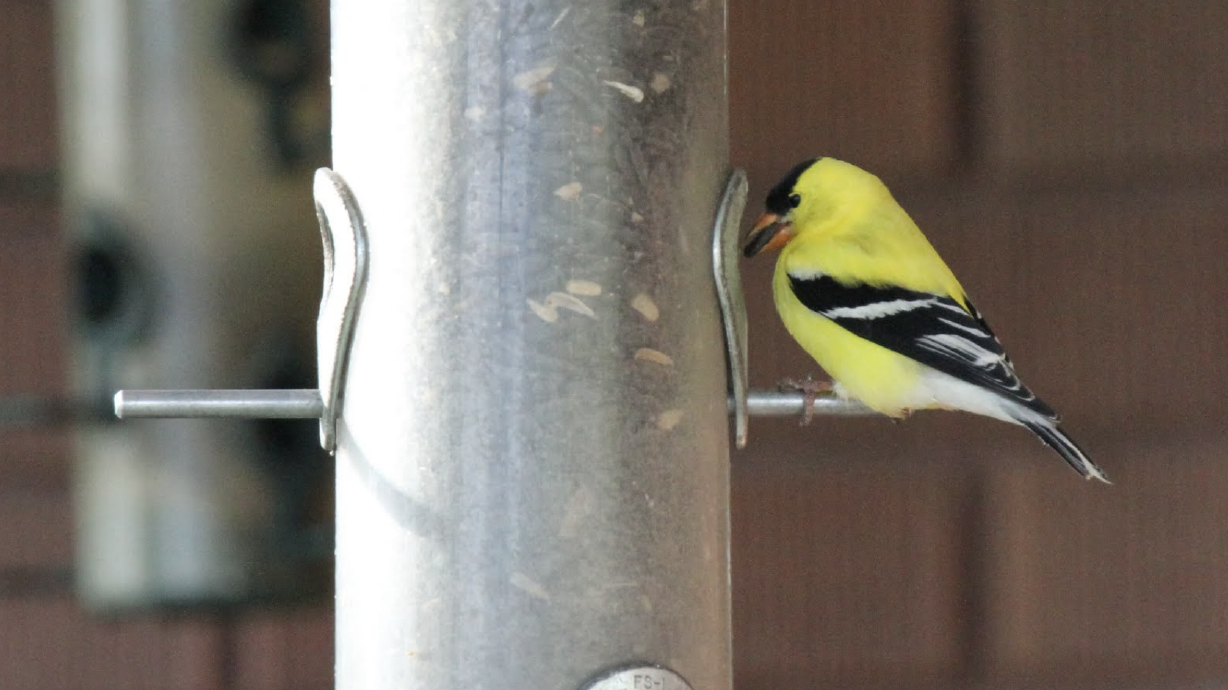Estimated read time: 4-5 minutes
This archived news story is available only for your personal, non-commercial use. Information in the story may be outdated or superseded by additional information. Reading or replaying the story in its archived form does not constitute a republication of the story.
SALT LAKE CITY — State wildlife biologists are asking anyone who has bird feeders or bird baths to temporarily remove them or clean if they spot any dead or sick birds due to a rising number of sick or dead birds at feeders located in northern Utah.
Officials said Tuesday it suspects the rise to be tied to a salmonella outbreak linked to the deaths of numerous songbirds across several U.S. states in recent months.
Salmonellosis, as it is officially called, is a bacterial disease that's transmitted through direct contact. It's commonly spread through infected feces, according to the Utah Division of Wildlife Resources. It typically affects birds like pine siskins, goldfinches and Cassin's finches but can affect any bird that comes in contact with a bird feeder on a regular basis.
Common signs of infection include ruffled feathers, rapid breathing, lethargy, weakness, neurological signs and diarrhea.
The agency recently began to receive an uptick in calls about sick or dead birds in Weber County and other northern Utah counties, said division spokesperson Faith Heaton Jolley. It's what prompted the division to issue an alert about the issue Tuesday.
"We want to educate people so they know what they can do to help decrease the spread," she said. "This is primarily for the health and safety of the birds themselves."
DWR biologists request that Utahns who have seen sick or dead birds in their area to temporarily remove all bird feeders and bird baths for at least one month and clean them. Experts from the division said removing bird feeders and bird baths will spread out birds and help slow the transmission of the disease in birds.
Jolley said that Utahns who have not seen any sick or dead birds should still clean their bird feeders or bird baths as a precaution.
"We all love to see wild birds come to our feeders, but feeders that are not properly cleaned can pose more of a risk than a benefit for birds," said DWR biologist Adam Brewerton, in a statement.
It's encouraged that people wear gloves when handling either a bird feeder or bird bath. Once the feeder or bath is removed, it's encouraged that people clean it thoroughly with soap and water before they disinfect it with 10% bleach solution.
"Soak it for at least 30 minutes, and then rinse thoroughly and let it dry completely," division officials wrote. "Clean the area under the bird feeder and remove all bird seeds, which could attract birds to the area."
Utahns who spot more than five sick or dead birds in their yards are encouraged to contact their nearest division office, where officials may conduct disease testing if it's happening in a new area.
The Utah Division of Wildlife Resources listed outbreaks reported in Idaho, Oregon and Washington over the past few months. Officials from the California Department of Fish and Wildlife told KCRA in Sacramento last month that a salmonella outbreak was also reported in California beginning in December following a surge in deaths of mostly American goldfinches and pine siskins in the Bay Area and Sierra regions.
"Our lab documents Salmonellosis outbreaks periodically during the winter in pine siskins," Krysta Rogers, a senior environmental scientist for the California department told KCRA on Feb. 8. "The previous large outbreak occurred between December 2015 and March 2016."
But it's not just biologists in the western U.S. making pleas for residents to clean bird feeders and birdbaths. The Carolina Waterfowl Rescue in North Carolina also reported an outbreak in the Carolina region, according to WCNC in Charlotte, North Carolina.
Salmonellosis outbreaks of this nature are most often reported in the winter months and spread through bird feeders, according to the Cornell Wildlife Health Lab. The lab pointed out that humans and domestic animals can become infected by diseased songbirds but it's preventable.
"Common sense hygiene can protect from human infection: hand washing, avoiding eating, drinking or personal care while handling animals or contaminated equipment," it wrote.
Contributing: Paul Nelson, KSL NewsRadio









